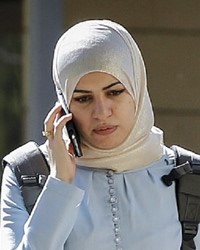Arab in Congo, Democratic Republic of

Photo Source:
Hashim Abdullah - Pixabay
|
Send Joshua Project a map of this people group.
|
| People Name: | Arab |
| Country: | Congo, Democratic Republic of |
| 10/40 Window: | No |
| Population: | 34,000 |
| World Population: | 1,927,100 |
| Primary Language: | Arabic, Levantine |
| Primary Religion: | Islam |
| Christian Adherents: | 2.00 % |
| Evangelicals: | 0.02 % |
| Scripture: | New Testament |
| Ministry Resources: | Yes |
| Jesus Film: | Yes |
| Audio Recordings: | Yes |
| People Cluster: | Arab, Arabian |
| Affinity Bloc: | Arab World |
| Progress Level: |
|
Introduction / History
Did you know that there are two central African countries with the name of Congo? One is the Republic of the Congo. The other is the larger, more populated Democratic Republic of the Congo once known as the Belgian Congo and Zaire. The DR Congo has been labeled a "failed state." It has some of the greatest natural resources of any nation. It has rich reserves of cobalt, copper, diamonds, tin, oil, and gold. Yet, the per capita income of DR Congo income is one of the lowest in the world. King Leopold II of Belgium considered the Congo his private rubber plantation from 1888 to 1908. Millions of the Congolese inhabitants died of famine, exploitation, murder, and disease. Since its independence in 1960 DR Congo has seen a constant series of civil wars, foreign interventions and military coups. At one point in 1998, 20 different military forces were operating in the DR Congo's borders including ones from nine African nations. Arabs came to the Congo in the 19th century as merchants and slave traders. Some decided to stay and make the Congo their permanent home. The primary language of these Arabs is Arabic. They also speak French and local languages.
What Are Their Lives Like?
Most Arab people of the DR Congo live in urban areas. They own shops, restaurants and businesses. Some work in the mining industry as managers and foremen. Mining is the main source of cash in the country. The Arabs in the Congo have tried to stay out of the political upheavals and keep their businesses and families safe. Most of the Europeans who were administrators and business owners in the Congo left when the DRC became an independent nation in 1960. Arabs helped fill the jobs of these departing, skilled workers. Arab parents want their children to marry another Muslim Arab. They encourage their children to gain a secondary and tertiary education. Most Arab young people must leave the Congo to finish their education. Few functioning universities operate in the DR Congo.
What Are Their Beliefs?
The vast majority of DRC Arabs are Sunni Muslims. They try to obey the teachings of the Koran and the prophet Mohammad. Sunnis believe that by following the Five Pillars of Islam that they will attain heaven when they die. However, Allah, the supreme God of the universe, determines who enters paradise. Sunnis pray five times a day facing Mecca. They fast the month of Ramadan. They attend mosque services on Friday. If a Muslim has the means, he or she will make a pilgrimage to Mecca once in his or her lifetime. Muslims are also prohibited from drinking alcohol, eating pork, gambling, stealing, using deceit, slandering, and making idols. The two main holidays for Sunni Muslims are Eid al Fitr, the breaking of the monthly fast and Eid al Adha, the celebration of Abraham's willingness to sacrifice his son to Allah. Only a tiny fraction of the Arabs in this African country claims to be followers of Jesus Christ.
What Are Their Needs?
All the peoples including the Arabs living in the DR Congo need a stable, just government. Parents need good schools, medical care and a steady supply of food for their children. The Muslims need to understand that Isa or Jesus is more a human prophet. He is the Son of God and their only Savior.
Prayer Points
Pray that Arabs in the DR Congo are able to meet the needs of their children. Pray that each Arab person is able to hear a clear presentation of the gospel. Pray that the Lord uses TV and radio programs in Arabic to reach these Muslims. Ask God to raise up a Disciple Making Movement among the Arabs of the DRC this decade.